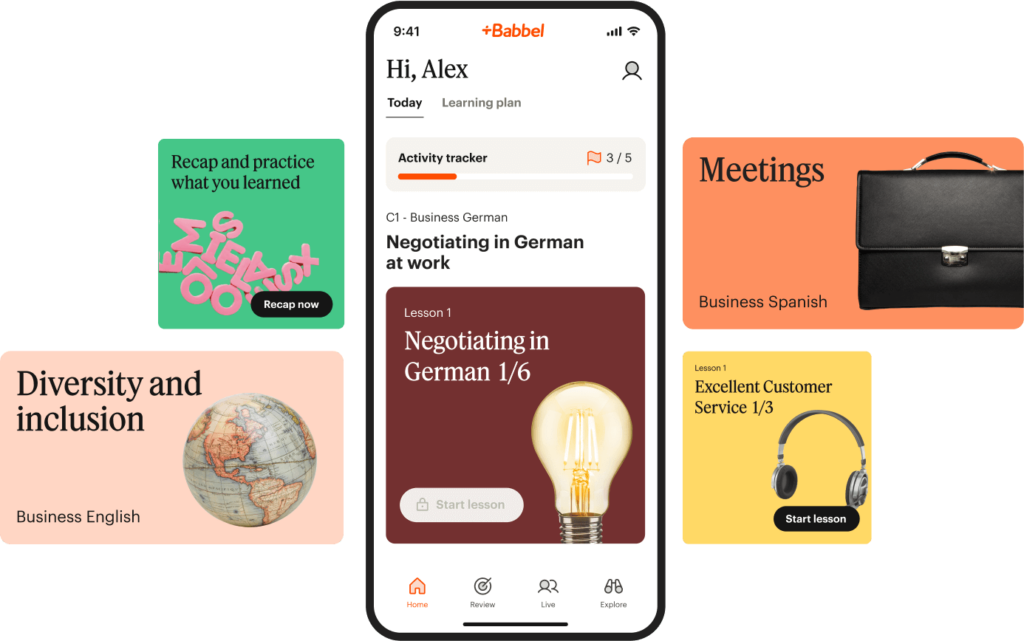Language Learning for Internationalization
Expand globally with ease
Connect with local customers
Collaborate effectively with a multilingual team

95%
of the world’s consumers are outside America’s borders
35%
Culturally diverse teams are 35% more likely to see above-average financial performance
$769.7 billion
Amount of money the global outsourcing market generates
Why is language learning essential for internationalization?
Expanding internationally can help companies increase profits and market share – and stay competitive. Language learning can help businesses reach more customers, build their brand presence, and increase sales in new regions.

What are the benefits of language learning for internationalization?
Global expansion is an essential strategy for accessing new markets, tapping into diverse talent pools, and fostering innovation. Language barriers can impede effective communication, leading to misunderstandings and frustration among team members.

Check out our internalization blog posts
Business Development
Find out what makes global teams successful and discover practical tips for overcoming language barriers.
Business Development
We share practical strategies for HR and training leaders, focusing on how to improve communication and create an inclusive work environment.
Over 2,000 satisfied companies
John Shin
Director of Risk Management
Monarch Landscaping
Landscaping Industry
“It’s priceless. You’re able to speak with your crew in Spanish, and it builds camaraderie and trust. Our people enjoy it. We’ve had nothing but positive feedback.”
Wildlife Works
Our blended learning solutions

Control Panel

Babbel Live

The Babbel App
FAQs
Babbel for Business offers tailored language learning solutions designed to meet the unique needs of companies looking to expand internationally. Our platform provides access to a wide range of languages, enabling employees to develop essential communication skills for engaging with clients and partners in different markets. With interactive courses, real-life scenarios, and culturally relevant content, Babbel helps employees gain confidence in their language abilities. Additionally, our analytics tools allow businesses to track progress and measure the impact of language training on productivity and collaboration, ensuring that your team is well-prepared for global success.
The best languages for global business success often depend on your target markets. Understanding the local language enhances customer engagement and demonstrates commitment to cultural sensitivity. Analyzing market trends and customer demographics can help identify the most strategic languages for your business needs. Babbel for Business gives you and your employees access to these 14 languages: English, Spanish, French, German, Italian, Polish, Dutch, Portuguese, Danish, Swedish, Norwegian, Turkish, Indonesian, and Russian. Our Learner Success team will support your team in their language learning goals, and you will be able to monitor their progress through our Control Panel.
Preparing for international expansion requires a strategic approach. Ensure your team is equipped with essential skills, particularly language proficiency, to communicate effectively in new markets. Invest in corporate language training initiatives so your team has resources to rely on throughout this process.






We share the top five hard skills that global companies and their leaders can benefit from the most today to build teams and maintain a competitive edge.